Case studies demonstrate successful Aboriginal and Torres Strait Islander access to specialist care across Australia in various health settings. Stakeholders are encouraged to consider how the case studies can inform their own service and practice.
Rural and remote
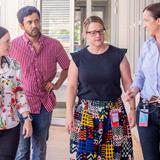 Location: The Kimberley
Location: The Kimberley
Principles demonstrated: Integration and continuity of care, sustainable and feasible
A longer term goal is to increase the health of the future adult Aboriginal population by focusing on the health of expectant mothers, the unborn, infants and children. Specialist services are critical in this context.
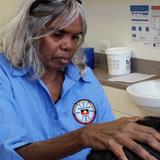 Location: Central Australia
Location: Central Australia
Principles demonstrated: Culturally safe, family- and patient-orientated
Steps are being taken to integrate Aboriginal and Torres Strait Islander nations traditions into the contemporary Australian health system and ensure their survival into the future.
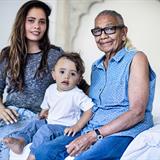 Location: New South Wales
Location: New South Wales
Principles demonstrated: Indigenous leadership
Rural and remote-living Indigenous people with chronic disease can face barriers of distance, cultural difference and cost in having often complex health care needs met in a coordinated way.
 Location: Queensland
Location: Queensland
Principles demonstrated: Integration and continuity of care, sustainable and feasible
Torres Strait Islanders have among the highest prevalence of diabetes in Australia. Glycaemic control is a challenge in the Torres Strait Islands and rates of insulin treatment are low.
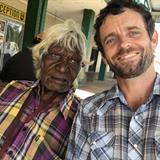 Location: Northern Territory
Location: Northern Territory
Principles demonstrated: Cultural safety, integration and continuity of care
Specialist Dr Simon Quilty started work in Katherine in 2012. In the past five years he has developed an outreach program to remote Indigenous communities in the Katherine area.
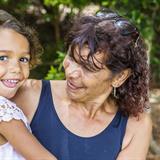 Location: Northern Territory
Location: Northern Territory
Principles demonstrated: Flexibility, family- and patient-orientated
Indigenous people face significant barriers to accessing hospital and specialist care across the remote ‘Top End’ of Northern Territory, where some of the most disadvantaged communities in Australia are found.
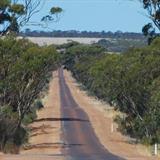 Location: New South Wales
Location: New South Wales
Principles demonstrated: Culturally safe and equitable services, sustainable and feasible
The sizeable NSW Indigenous population throughout regional and remote areas experience major health challenges with cardiovascular disease, cancer, diabetes and kidney disease. However, the call for specialists goes unanswered.
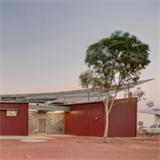 Location: Pilbara
Location: Pilbara
Principles demonstrated: Culturally safe, place-based, sustainable and feasible
For rural and remote-living Indigenous people with advanced kidney disease, the need to be near dialysis machines can challenge connections to country, community and family.
Urban
 Location: Victoria
Location: Victoria
Principles demonstrated: Family and patient-centred, quality and accountability
Outreach is not the only way for hospitals to work with local Aboriginal and Torres Strait Islander communities. It is also critical to ensure that Indigenous people have a positive hospital experience.
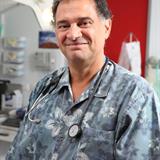 Location: Queensland
Location: Queensland
Principles demonstrated: Indigenous leadership, cultural safety, community engagement
This case study shows how specialists contribute to an award-winning Indigenous health service. It includes the remarkable story of how the service’s original 12 Indigenous clients expanded to over 10,000.
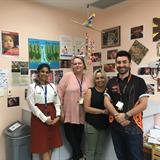 Location: Victoria
Location: Victoria
Principles demonstrated: Integration and continuity of care, cultural safety
Outreach does not necessarily involve travelling long distances to remote communities.